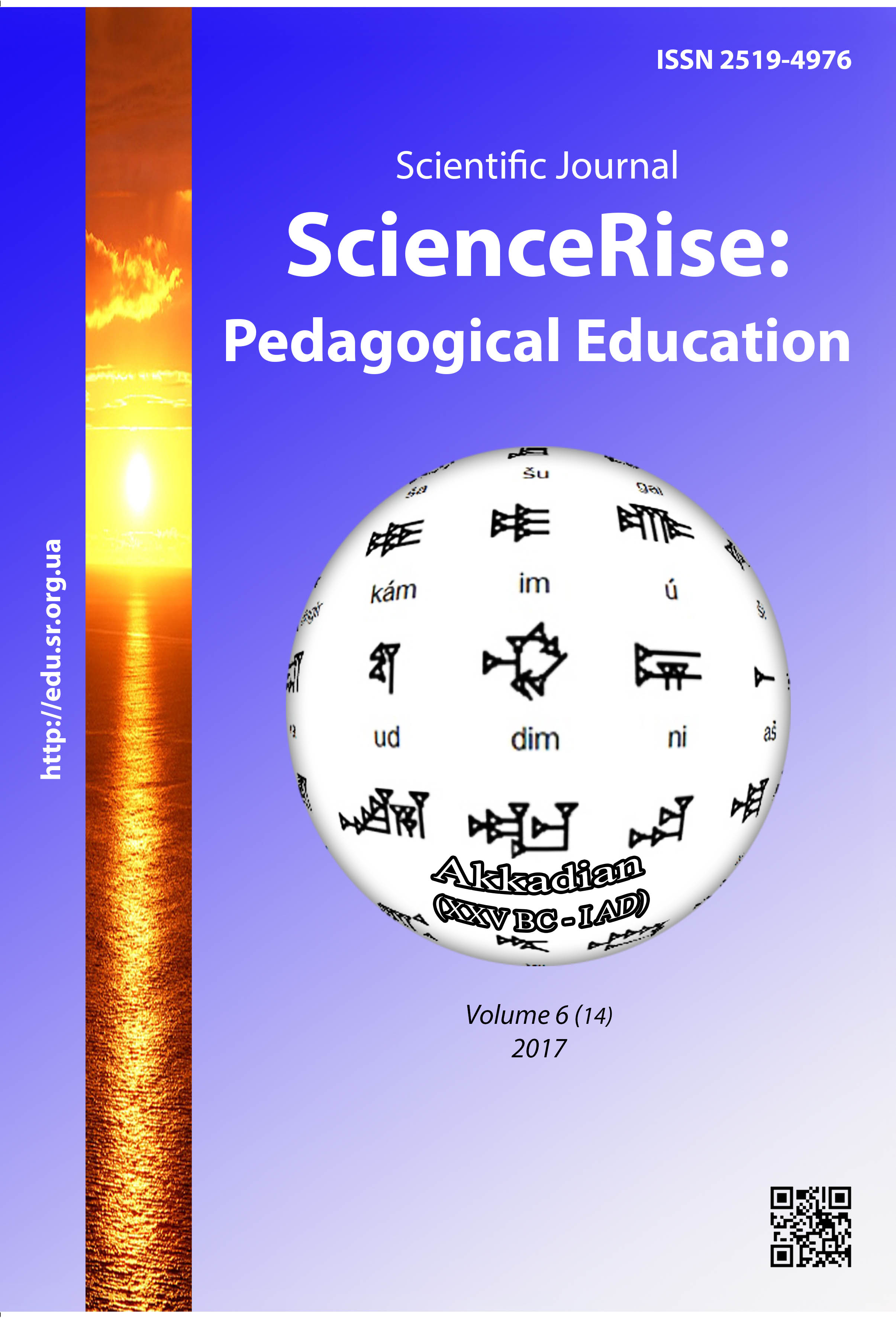Analysis of the educational and professional programs of training of specialists in the specialty 231 social work
DOI:
https://doi.org/10.15587/2519-4984.2017.105503Keywords:
professional training, social worker, social work, training of future social workersAbstract
The results of analysis present educationally professional programs of training of future social workers in the institute of higher education in Ukraine in accordance with criteria: subject area; feature of the program; content and/or components of professional competence; predicted training results. The specific feature of the theoretical approaches to the training of specialists in the specialty 231 Social work is justified. The results of studying foreign experience of higher social education are presented
It is well-proved that the sphere of professional training of future social workers needs specialization depending on the categories of clients of future professional activity. Expansion of fields of professional activity of the future social workers are directed on the increase of employment opportunities, however negatively represented on quality of professional training through supersaturating of content.
It is proved that the most educational and professional programs require additions naturally scientific disciplines, which directly determine the future ability of graduating students for system thinking taking into account the state of environment.
In comparing to the foreign programs of training of the social workers (USA, Great Britain, France), Ukrainian educational programs are not practice oriented; volume of educational time for practice is most often 10%, which is not sufficient for the formation of the competences
References
- Vinnikova, L. V. (2003). Systema pidgotovky sotsialnykh pratsivnykiv u vyshchykh navchalnykh zakladakh SShA. Luganskyi nats. ped-yi un-t im. T. Shevchenka. Lugansk, 20.
- Tymenko, V. (2008). Porivnialnyi analiz profesiinoi pidgotovky sotsialnykh pratsivykiv u vyshchykh navchalnykh zakladakh SShA ta Ukrainy. Available at: http://er.nau.edu.ua/handle/NAU/20908
- Mykytenko, N. O. (2006). Profesiina pidgotovka sotsialnykh pratsivnykiv v universytetakh Kanady. Ternopil, 20.
- Kulikova, A. Ye. (2009). Pidgotovka sotsialnykh pratsivnykiv do roboty z ditmy ta moloddiu u VNZ Shvetsii. Luganskyi nats. un-t im. T. Shevchenka. Lugansk, 20.
- Leshchuk, G. V. (2009). Systema profesiinoi pidgotovky fakhivtsiv sotsialnoi sfery u Frantsii. TNPU im. V. Gnatiuka. Ternopil, 20.
- Pichkar, O. P. (2002). Systema pidgotovky vakhivtsiv sotsialnoi roboty u Velykii Brytanii. TDPU im. V. Gnatiuka. Ternopil, 213.
- Romanovska, L. I. (2013). Systema pidgotovky fakhivtsiv z sotsialnoi roboty za kordonom na prykladi rozvynenykh krain. Visnyk Natsionalnoi akademii Derzhavnoi prykordonnoi sluzhby, 3. Available at: http://nbuv.gov.ua/j-pdf/Vnadps_2013_3_21.pdf
- Osvitnia programa: vymogy ta metodyka rozroblennia (2016). Zhytomyr: Vyd-vo ZhDU im. I. Franka, 60.
- Kozubovskyi, V. V. (2004). Sotsialnyi zakhyst nepovnolitnikh u Velykii Brytanii (porivnialnyi analiz). Uzhgorod: UzhNU, 129.
- Korniushyna, R. V. (2004). Zarubezhnyi opyt sotsialnoi raboty. Vladivostok: Izd-vo Dalnevostochnogo universyteta, 85.
- Kashpyreva, T. B. (2004). Modernizatsiia obrazovaniia spetsialistov sotsialnoi sfery v systeme mnogourovnevoi podgotovki studentov vo Frantsii. Tulа, 214.
- Polishchuk, V. A., Yankovych, O. I. (2009). Istoriia sotsialnoi pedagogiky ta sotsialnoi roboty. Ternopil: TDPU, 256.
- Kolkov, V. V. (1997). Metodologicheskie aspekty formirovaniia teorii raboty. Rabotnik sotsialnoi sluzhby, 1 (1), 15.
Downloads
Published
How to Cite
Issue
Section
License
Copyright (c) 2017 Serhii Kubitskyi

This work is licensed under a Creative Commons Attribution 4.0 International License.
Our journal abides by the Creative Commons CC BY copyright rights and permissions for open access journals.
Authors, who are published in this journal, agree to the following conditions:
1. The authors reserve the right to authorship of the work and pass the first publication right of this work to the journal under the terms of a Creative Commons CC BY, which allows others to freely distribute the published research with the obligatory reference to the authors of the original work and the first publication of the work in this journal.
2. The authors have the right to conclude separate supplement agreements that relate to non-exclusive work distribution in the form in which it has been published by the journal (for example, to upload the work to the online storage of the journal or publish it as part of a monograph), provided that the reference to the first publication of the work in this journal is included.








